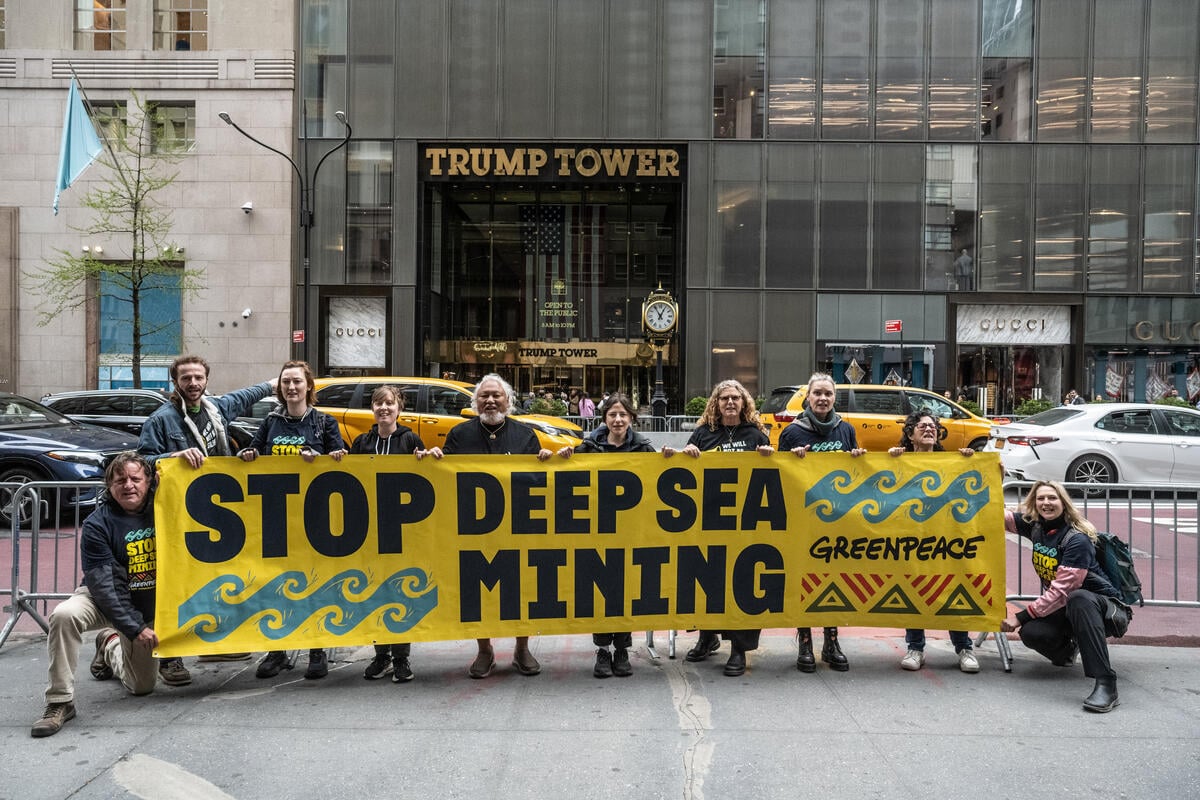Kingston, Jamaica — The latest meeting of the International Seabed Authority (ISA) Council, a body made up of 36 governments, finishes today with opposition to deep sea mining still growing. During the session, the United Kingdom became the 23rd country to announce its support for a moratorium or a precautionary pause on deep sea mining.
“Each new announcement of support for a moratorium is a beacon of hope for the deep sea and the global ocean. It reflects the growing recognition by the international community of the urgent need to protect our oceans. However, more countries still need to acknowledge that the world does not want or need deep sea mining and put the brakes on this industry”, said François Chartier, head of the Greenpeace International delegation attending the negotiations.
While the ISA’s negotiations on mining regulations, known as the mining code, remain far from being finalised, with many critical divergences of opinion persisting among state parties, more governments, scientists, businesses, Indigenous Peoples, and civil society groups continue to show their opposition to deep sea mining. This industry would bring about irreversible biodiversity loss to the global ocean, already under enormous stress from climate change, acidification, pollution, and other impacts resulting from human activities.
“We urge states to move away from negotiating a mining code that would pave the way for the start of another extractive industry and focus instead on putting in place a moratorium on deep sea mining. A moratorium is the only responsible way for states to fulfill their obligations under the Law of the Sea Convention to protect the marine environment,” said Chartier.
There is significant discomfort among some ISA delegations about being pushed to rush these negotiations simply because one single company, The Metals Company (TMC), is using a legal loophole known as the “two-year rule”[1] to speed up the process.
“Contrary to what the deep sea mining industry claims, deep sea mining is not a solution to the climate crisis. Deep sea minerals are not needed for a green energy transition. Instead, it represents the continuation of the same extractive model that we have seen with oil and gas and will only serve to open the last remaining frontiers of the world—the deep ocean—to massive destruction,” said Chartier.
ENDS
Notes:
[1] The two-year rule provision embedded in the U.N. Convention on the Law of the Sea (UNCLOS) obligates the ISA to “consider and provisionally approve” applications two years after they are submitted, whether it has finalised regulations or not. At the deadline in July 2023, the ISA Council reached a decision that repeated governments’ unwillingness to green-light deep sea mining without any rules. However, TMC subsequently announced it will apply for an exploitation contract after the ISA’s meeting in July 2024, irrespective of whether governments have completed their work or not.
Contacts:
Tanya Brooks, Greenpeace USA Senior Communications Specialist, +1 703-342-9226, [email protected]
Greenpeace International Press Desk: [email protected], +31 (0) 20 718 2470 (available 24 hours)
For the latest international releases, follow @greenpeacepress



